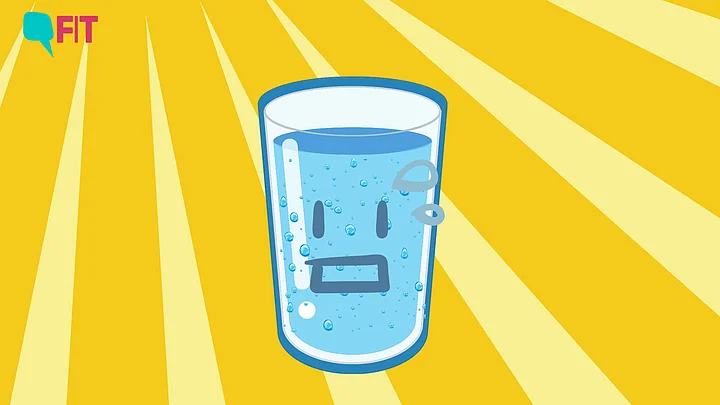If you want healthy bones, make sure to get lots of sun regularly because sunlight is the best source of vitamin D – this advice is drilled into all of us, and yet, so few of us actually manage to get enough time under the sun.
But what if you could capture the goodness of the sun in your regular ol' bottle of water for easier access?
Enter 'sun-charged' or 'supercharged' water – the practice of leaving water out in the sun for long hours to infuse it with minerals.
The internet is rife with articles and videos talking about the nearly magical properties of sun-charged water, complete with steps to DIY it at home.
Does leaving water out in the sun for a few hours cause it to have minerals and vitamins? The short answer is no. But, the process is not without its uses.
What Is Supercharged Water?
All these sources on the internet attribute this method of water treatment to Ayurveda, and Vedic literature. There are a bunch of different ways people recommend doing it.
According to most claims, keeping water in a glass tumbler for at least eight hours, over three days, in the sun alters the water's molecular structure and gives it 'extra energy'.
While some claim this technique helps 'charge' the water with vitamin D, others say it creates a 'magical elixir' that helps with overall health and immunity.
But here's the catch. There is no scientific evidence available to back any of these claims.
Can Sunlight Infuse Vitamin D in Water?
"This claim is ridiculous, because sunlight doesn't carry vitamin D with it," says Dr Ambrish Mithal - Chairman and Head of Endocrinology and Diabetes, Max Healthcare Hospital, New Delhi. "Your skin makes vitamin D out of sunlight."
Furthermore, Dr Sunil Kumar Mishra, Senior Director, Endocrinology and Diabetology, at Medanta, Gurugram, tells FIT, "There is no way water can synthesize vitamin D like humans can."
"When the skin is exposed to the ultraviolet B rays of the sun, the 7-dehydrocholesterol in the skin absorbs it and converts it into pre-vitamin D3. Then various enzymes in the liver and the kidney synthesise this pre-vitamin into vitamin D."Dr Sunil Kumar Mishra
So, for the synthesis of vitamin D that comes from the sun specifically, you need this precursor 7-dehydrocholesterol, which is not present in water, he adds.
Moreover, glass is known to block UV rays, which means they wouldn't even reach the water that's stored in a glass bottle in the first place.
"There are lots of misconceptions going around that if you drink that water (left out in the sun), you don't have to worry about your vitamin D intake, but that is not true," adds Dr Chhavi Agrawal, Associate Consultant, Endocrinology, Fortis Escorts, Okhla Road, New Delhi.
'Need Scientific Evidence'
What about other micronutrients and minerals apart from vitamin D?
"The science behind it is not that convincing," says Dr Ambrish Mithal. "There is no proof."
"Just saying it's Ayurveda is not enough. There has to be some evidence to back it."Dr Ambrish Mithal
Dr Mittal also talks about the potential damage one can do if they attempt to 'supercharge' water in a plastic container. "If you put a plastic bottle in the sun, and the plastic heats up, it can be potentially hazardous."
Moreover, considering the levels of pollution in our cities, experts say leaving uncovered water out in the open could get contaminated easily and prove counterproductive to your health.
Sun Exposure Can Help Purify Water
"The only positive change that I can imagine is some degree of disinfection. It is possible that sunlight exposure may kill germs, and it may have some sterilising effect, but I'm yet to find a convincing paper on that."Dr Ambrish Mithal
In fact, this theory is being put to the test in a big way.
Solar water disinfection, or SODIS, is an experimental method of water purification that uses solar energy to destroy pathogens and make water safe to drink.
According to the US Centres for Disease Control and Prevention (CDC), SODIS specifically uses UV-A radiation from the sun to inactivate pathogens that cause diarrhoea.
Researchers think this could prove to be a cost-effective alternative to filtering water in low-income regions where large communities of people don't have access to clean drinking water.
Some recent studies on this, including one conducted by Stanford University, have shown encouraging results.
However, there is no evidence that sunlight can purify water any better than filtering or even boiling your water will.
The bottomline is, if you have access to clean drinking water, that's been boiled or filtered or both, keeping it under the sun won't do much to it except make it hotter, and potentially contaminated.

